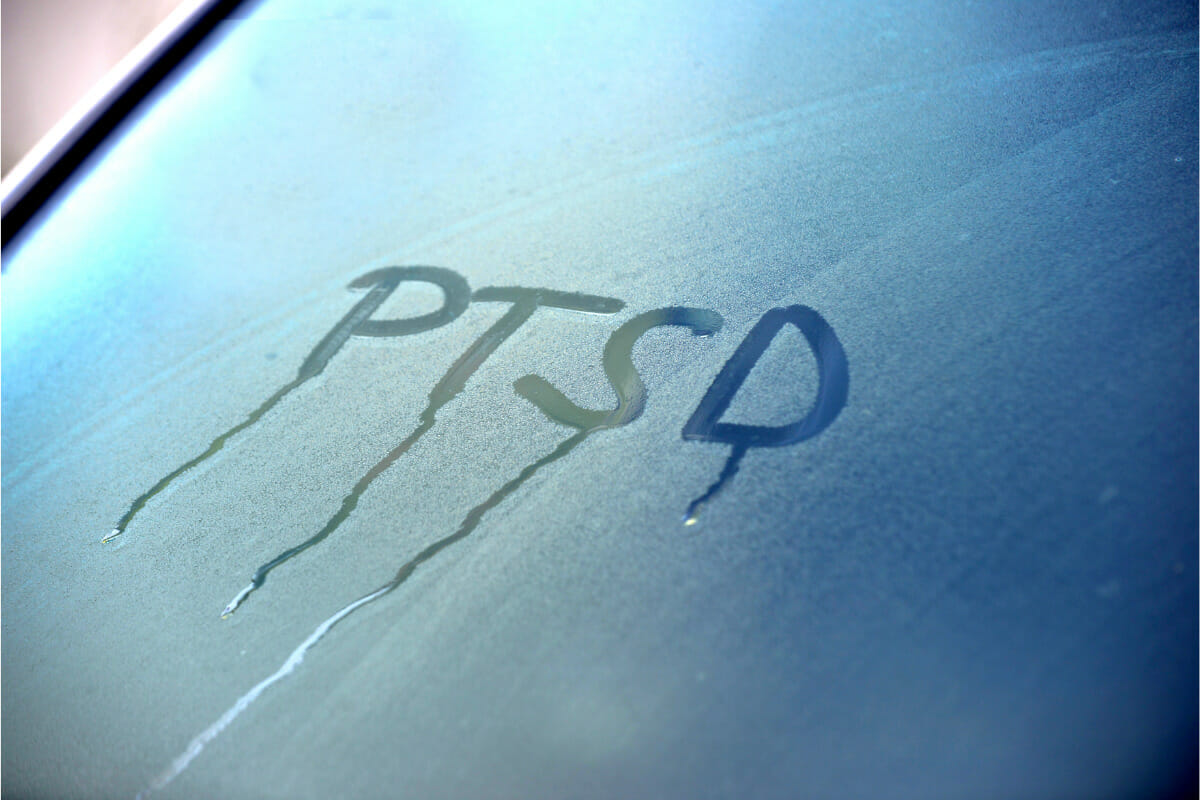Unfortunately, mental health conditions and substance abuse often go hand in hand. Perhaps the best example of this phenomenon is the high number of people with both PTSD and addiction.
Surveys from the U.S. Department of Veteran’s Affairs show that 46.4% of people with PTSD also meet the criteria for having a substance use disorder. Compared to the general population, women with PTSD are 2.48 and 4.46 times more likely to suffer from alcohol abuse or drug abuse, respectively. Men showed a similar pattern, being 2.06 and 2.97 times more likely to abuse alcohol or drugs than people without PTSD.1
Connections Between PTSD and Addiction
The exact link between the two conditions will vary from individual to individual. However, in many people, both illnesses exacerbate each other and lead to a negative spiral.
For example, suppose a person has PTSD from a previous traumatic event. In that case, they may turn to drugs or alcohol to self-medicate and numb their intense, traumatic feelings. This is especially true in certain cases, like when PTSD has led to violence or mood swings. Or where personal hardship has damaged relationships and made it difficult to find healthy coping methods.
In turn, alcohol and drug use have dramatic effects on brain chemistry. Prolonged substance use can upset the brain’s chemical balance and cause existing mental health conditions such as PTSD to worsen and become even more unmanageable. Chemical imbalance can also generate new conditions, such as depression and anxiety, on top of the other issues.
This reduction in coping skills and worsening mood and mental health disorders makes it even more likely that healthy relationships and life opportunities will erode and leave alcohol or drugs as the coping mechanism of choice. Once you’ve begun to fall into the cycle, it is hard to reverse without outside help.
PTSD Affects More People Than You Might Imagine
Though you may primarily think of war veterans when you hear about PTSD, the truth is that post-traumatic stress comes from any number of acute or chronic experiences. People who have traumatic childhood experiences are very likely to carry this stress into their future lives in PTSD and a substance abuse disorder.2
Similarly, suppose a person was a victim of rape, abuse, violence, or another form of trauma in adulthood. In that case, they have a higher chance of developing a substance abuse disorder when compared to the general population.3
It’s Essential to Treat PTSD and Addiction at the Same Time
Because PTSD can contribute to addiction and addiction can worsen PTSD, it is difficult to treat the two conditions separately. Sadly, even if you improve one, the other remains. The remaining condition threatens to pull patients back into both addiction and mental illness, which starts the cycle again.
Instead of treating them separately, Silver Sands Recovery offers dual-diagnosis therapy to address PTSD and addiction simultaneously. Effective treatment changes that negative cycle into a positive one. This means that improvement in one condition leads to progress in the other. The key is for the individual to have a support system and toolbox of skills to utilize in recovery.
If you suspect you may be dealing with a concurrent mental illness such as PTSD in addition to your addiction, contact Silver Sands Recovery and ask about dual-diagnosis treatment. Our experienced staff will be happy to answer your questions and get you started on the best path for recovery.
Sources:
[1] https://www.ptsd.va.gov/professional/treat/cooccurring/tx_sud_va.asp
[2] https://www.ncbi.nlm.nih.gov/pmc/articles/PMC3051362/
[3] https://www.ncbi.nlm.nih.gov/pmc/articles/PMC3811127/
About the author:

Lisa Waknin is the Founder and Director of Silver Sands Recovery, located in Prescott, Arizona. Lisa started Silver Sands Recovery after immersing herself in the addiction treatment world for several years to figure out what could be done differently to help her daughter and others like her to overcome addiction and stay sober. She believes in a hands-on treatment approach, which includes taking someone out of their environment, providing a 90-day program in a structured environment. During treatment, clients not only recover physically but also learn to live their life again. Lisa is a sought-after expert speaker for recovery support groups, charities, schools, communities, and companies wanting to educate themselves on the explosion of opiate and heroin abuse in our country and the best way to understand, treat, and beat it.





